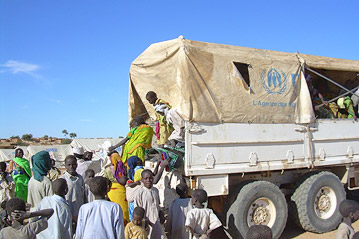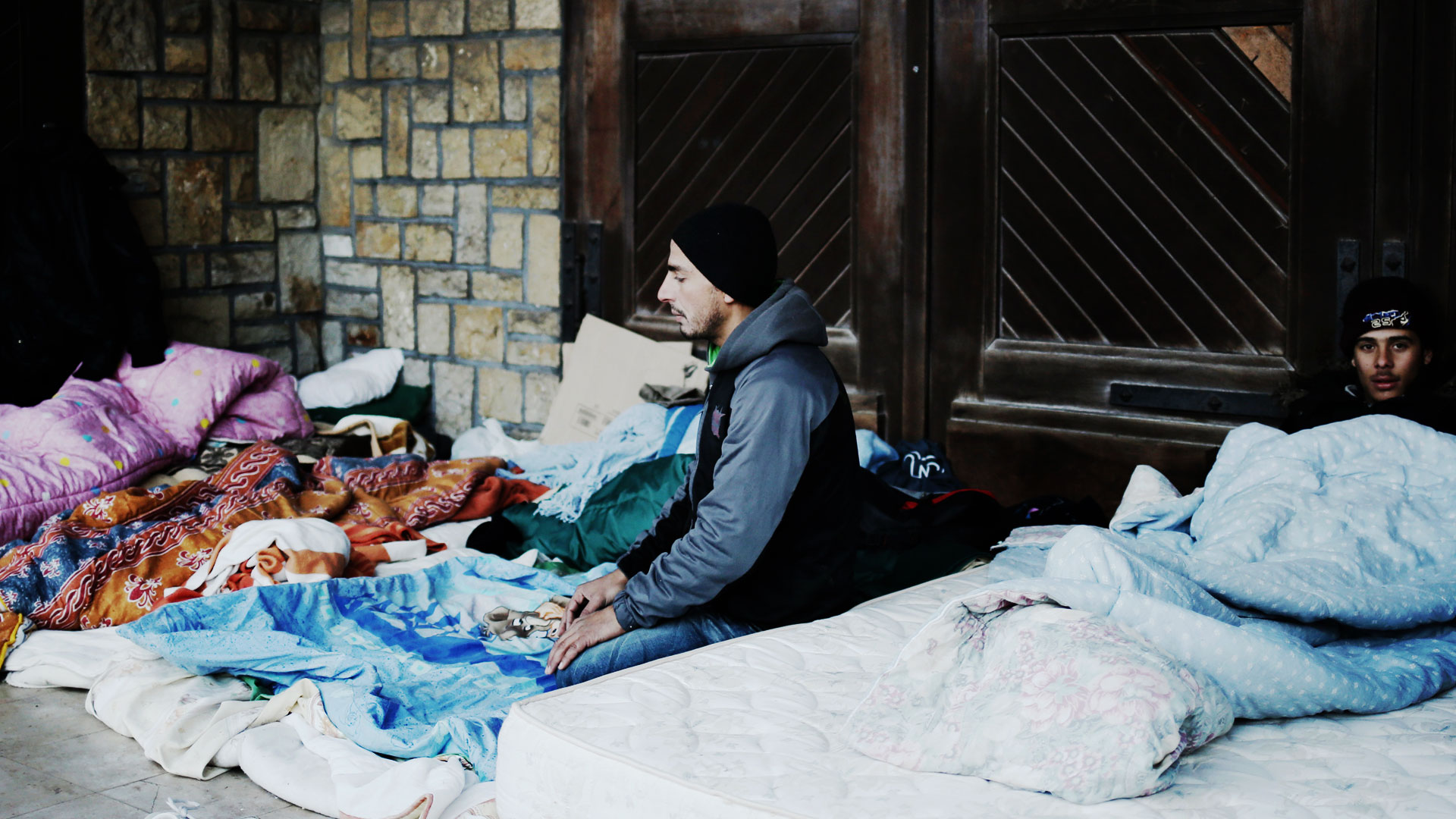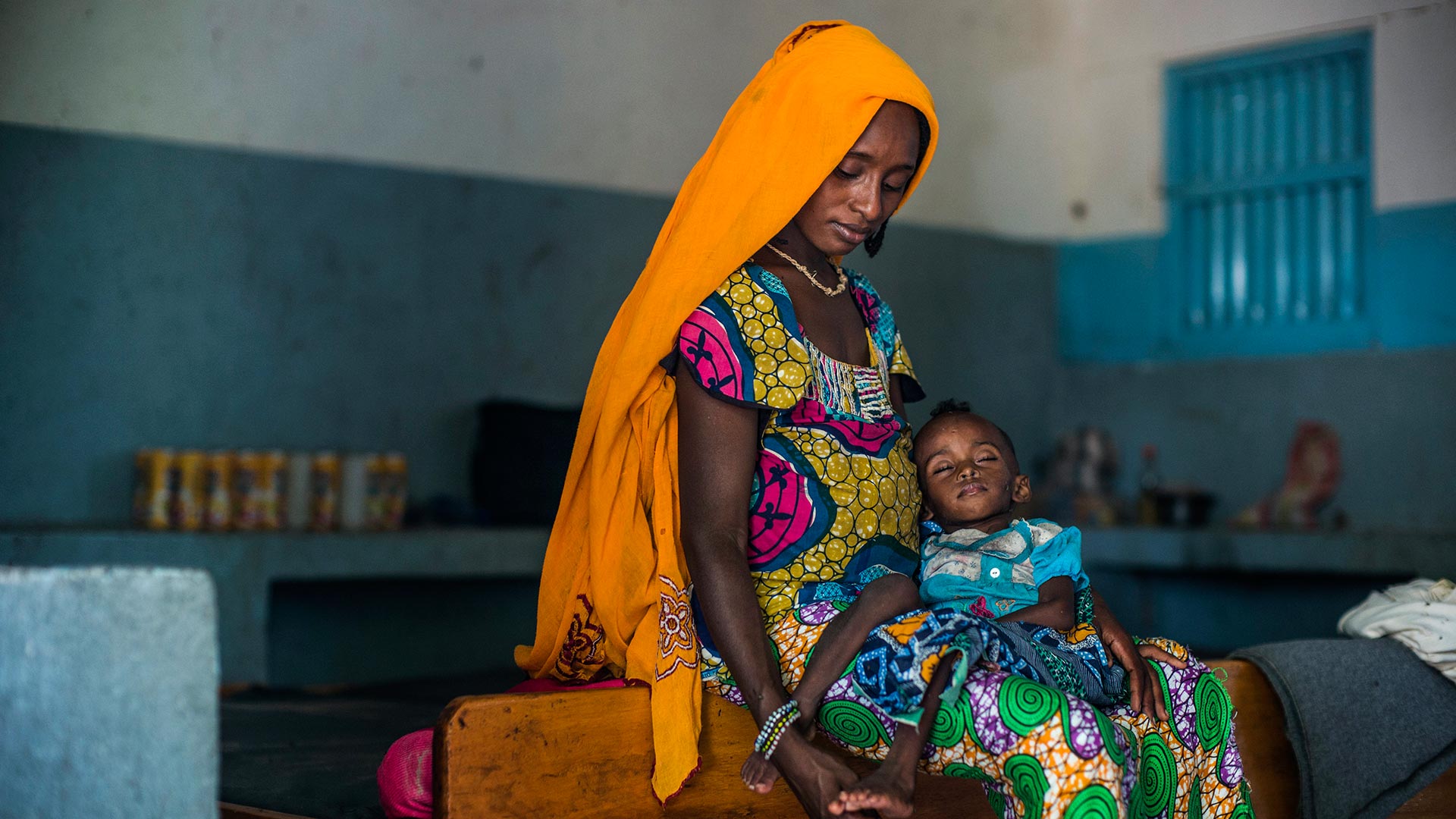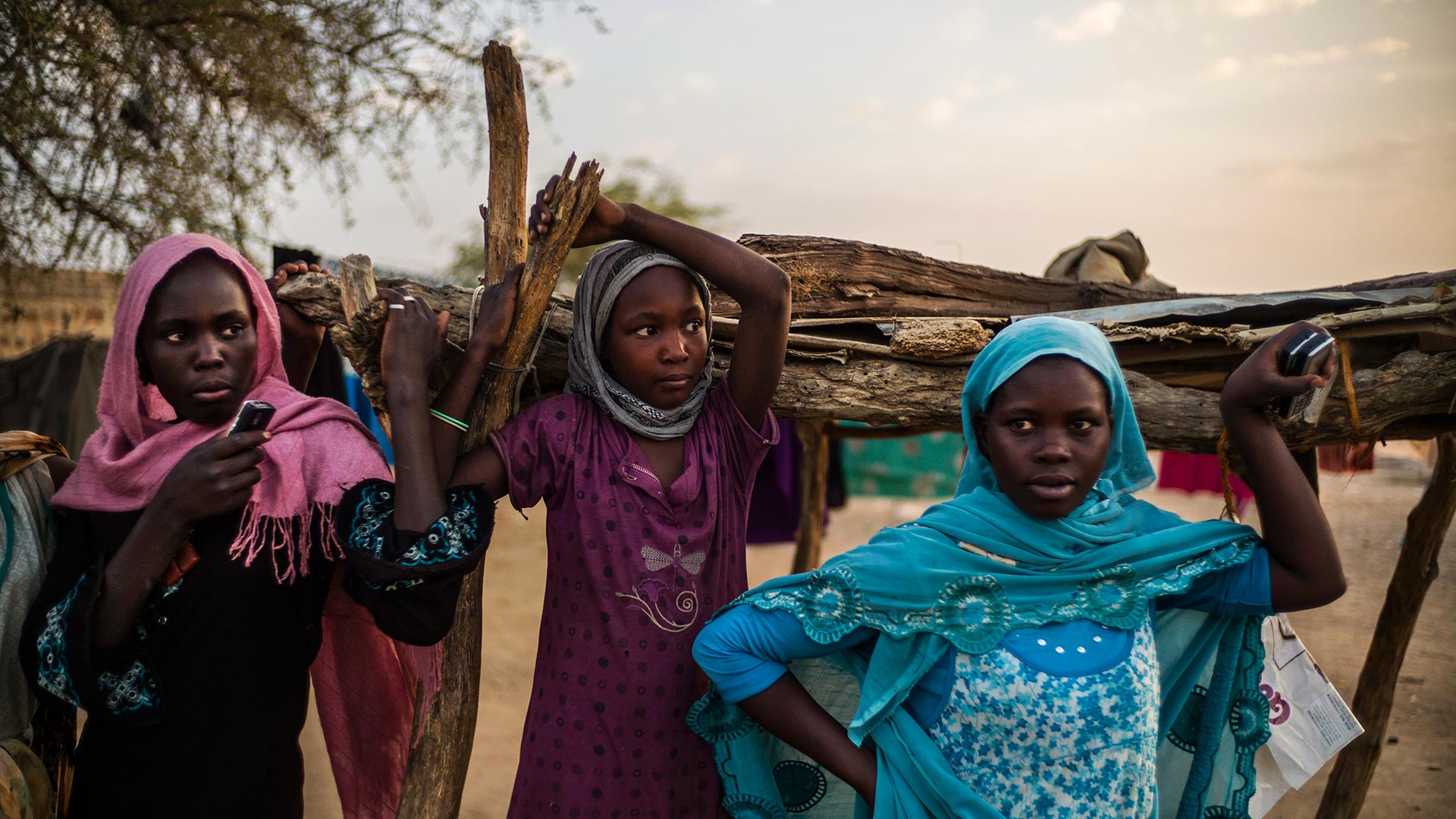Survivors of Darfur massacre face uncertain future in fragile Chad
Survivors of Darfur massacre face uncertain future in fragile Chad

KOUNOUNGO, Chad, November 28 (UNHCR) - Five-year-old Khadidja is not sure why she is here in eastern Chad and she does not remember the name of the village in Darfur from which she fled. Her hair neatly braided but covered in dust, the Sudanese child says she is happy to be here, before shyness overcomes her and she runs off to find her mother.
Mohamet, aged 15, steps up to fill in some of the blanks. He says his Western Darfur village was attacked by "black and white Arabs." He was very scared but, with his parents, brothers and sisters, reached the Seneit village border area in eastern Chad. His says he misses his friends, and he would rather be back home than here.
Khadidja and Mohamet are just two of the approximately 1,500 Sudanese who fled to Chad to escape a round of vicious attacks in late October in the Jebel Moon region of Western Darfur. Survivors claim that the attacks, which left about 50 civilians dead, including 26 children, were carried out by several hundred janjaweed militiamen.
Over the past 10 days, UNHCR has moved more than 670 of these refugees away from the border to the Kounoungo camp, located about 65 kilometres inland and currently home to some 13,000 refugees from Darfur.
But while they are probably safer in Kounoungo, one of a dozen camps for Sudanese refugees in eastern Chad, the security situation is volatile and could impact on what humanitarian agencies can do in the east, where UNHCR is helping some 215,000 refugees and some 90,000 displaced Chadians.
Forces opposed to the Chad government briefly held the town of Abéché at the weekend and UNHCR warehouses were looted in the town. In the south-east, armed horsemen attacked more than 20 villages in the south-east earlier this month, killing scores of locals and causing thousands of Chadians to flee their homes.
The eruption of hostilities is a worrying development, but the refugees arriving in Kounoungo appeared to be happy to get as far away from Jebel Moon as possible. Adam Abakar, 32, who has lived in the camp for almost three years, had words of welcome for the new arrivals, including his five children and their grandmother. They escaped the Jebel Moon slaughter, but Abakar's sister-in-law and uncle were killed.
"Life in the camp is good, We have enough to eat and drink here. We will stay until security returns to Darfur," said the refugee, who hoped to be reunited soon with his wife who reportedly fled in a different direction.
Before the first transfer convoy from the border to Kounoungo got under way on November 17, a schedule was discussed with the newly arrived refugees, about half of whom requested additional time to wait near the border for family members to arrive, or to return first to their villages to harvest as much of their crops as possible.
Fifteen-year-old Mariam's father was among those who remained at the border with his livestock, hoping to sell it before coming to join her and her husband, Idriss, in Chad. They fled when armed men attacked their village. "Men and women were killed, as were children - particularly boys. Livestock was stolen as well," she says.
UNHCR wants to complete the transfer as soon as possible, given reports that armed groups remained in the Jebel Moon region and fears that the refugees could be attacked or caught in the middle of fighting between rival forces. The arrival of the colder winter weather is also a concern.
The UN refugee agency's implementing partner, International Medical Corps, has been conducting medical and nutritional screening of the arrivals, but no serious problems have been found aside from a couple of cases of refugees needing treatment for bullet wounds.
Another implementing partner, Secadev, is providing 15-day food rations for each refugee family in advance of the next general food distribution in December. The rations include corn and wheat flour, sugar, cooking oil, salt and beans. New arrivals are also receiving a standard package of non-food items that includes a kitchen set, blankets, mats, mosquito nets, soap and jerry cans.
UNHCR planned in the last week of November to undertake a border monitoring mission in order to assess the situation and to better anticipate how many new refugee arrivals might be expected. The agency has received reports of some 300 families - about 1,500 individuals - who are waiting on the Sudanese side of the border either until they have harvested their crops or until it is safe to cross.
UNHCR estimates that up to 7,000 people in the Jebel Moon region were affected by the violence. Some remain in the area, while others fled to other parts of Sudan or across the border into Chad.
By Matthew Conway in Kounoungo, Chad








